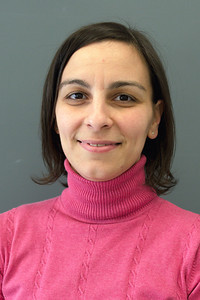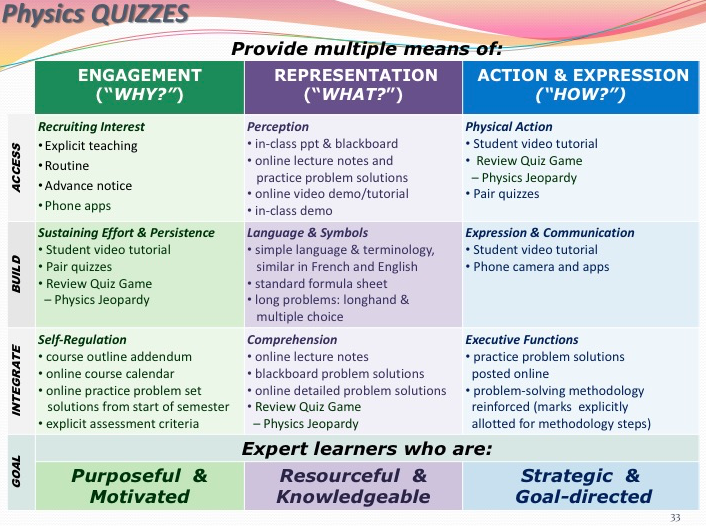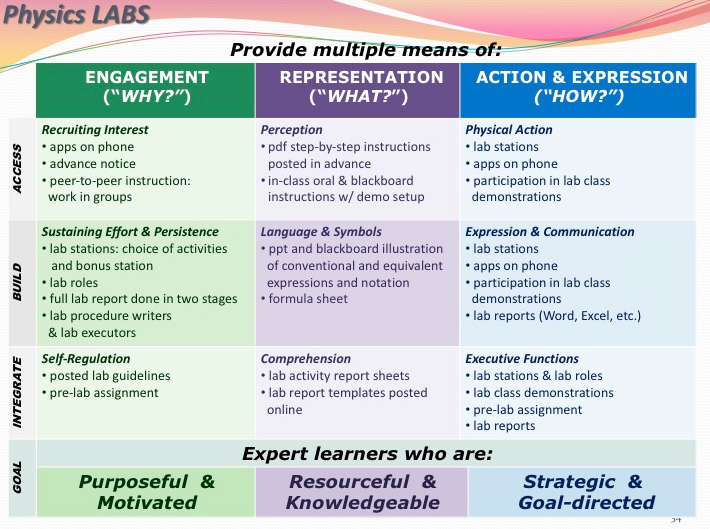Maria Dikeakos’ Portfolio
 I teach physics to college students enrolled in various programs: science, engineering technology, and radiation oncology. While the basic physics taught in each program does not change, the method and materials used to teach the physics is continually in flux.
I teach physics to college students enrolled in various programs: science, engineering technology, and radiation oncology. While the basic physics taught in each program does not change, the method and materials used to teach the physics is continually in flux.
Each semester, each student in each section of each course is different. Different students have different learning styles. These differences are owing to a number of factors: background knowledge, cognitive processes, language ability, age/maturity, emotional/psychological state, physical state, motivation, … , etc.
A variety of learning styles accordingly means a variety of teaching styles.
When the information is communicated using a variety of methods and materials (e.g. lecture, audio-visual, demonstration, experiment, etc.), all students are given an opportunity to integrate the new knowledge and to develop a deeper comprehension.
Equally important is to offer flexibility when evaluating the progress of students: providing multiple options and opportunities for them to demonstrate their knowledge.
As a teacher in the sciences, I am always trying to reach all of the students in the class. This is not always easy to accomplish. There are many constraints and hurdles to overcome:
- course constraints with regards to common material & exams
- time, infrastructure, and support staff
- students’ “grade-oriented” learning
(competitive programs: focus on grades and not on acquiring learning skills and a proper foundation of knowledge)
My course material currently is already prepared with UDL (Universal Design for Learning) in mind. My focus on this project was on supplementing and/or modifying the traditional evaluation methods common in the sciences which tend to be “one-size-fits-all” and virtually unchanged over the last few decades.
Specifically with UDL in mind, my goal was to offer a variety of options for quizzes and lab experiments so as to:
- minimise bias & maximise inclusion
- teach independent learning and application of newly-acquired skills
- reintroduce the joy of learning & discovery in science
- focus on learning – for learning’s sake & not solely for grades
Some of the quiz options introduced include:
- pair quizzes
- review quiz game – Physics Jeopardy
- student video tutorial quiz
- alternate long problems: longhand & part-mark multiple-choice

Some of the lab options introduced include:
- lab stations including bonus station
- “black-box” investigations
- lab report revisions
- lab report fill-in sheets

This UDL journey through the scientific method has been an exercise in reflection and courage – trying to “think outside the box” and changing methods seemingly “set in stone”. I have enjoyed exchanging ideas, expressing concerns, and reciprocating encouragement with my colleagues in this cohort and look forward to ongoing exchanges.
Read more:



